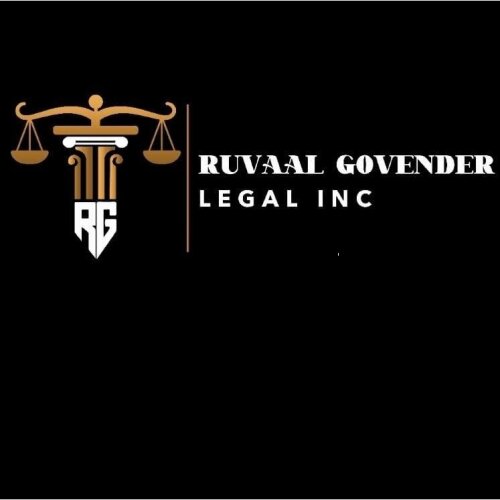Best Divorce & Separation Lawyers in Durban
Share your needs with us, get contacted by law firms.
Free. Takes 2 min.
Free Guide to Hiring a Family Lawyer
List of the best lawyers in Durban, South Africa
South Africa Divorce & Separation Legal Questions answered by Lawyers
Browse our 1 legal question about Divorce & Separation in South Africa and read the lawyer answers, or ask your own questions for free.
- What can I do to get my divorce settlement
- I got divorced last November, but I haven't received my settlement. It's a story from one to another, so what must I do to get my settlement
-
Lawyer answer by MAH&CO.
Hello, I'm sorry to hear about your situation. If your divorce was finalized last November and you still haven’t received your settlement, it’s important to take legal steps without further delay. In most cases, the court's judgment or settlement agreement...
Read full answer
About Divorce & Separation Law in Durban, South Africa
Divorce and separation are sensitive and often complex legal processes that involve the dissolution of a marriage and the resolution of associated issues like child custody, division of assets, and spousal support. In Durban, South Africa, these matters are dealt with under the country’s divorce law which is part of the family law system. The process can vary depending on whether the divorce is contested or uncontested, as well as the specific circumstances of the couple involved. Understanding these legal processes, rights, and obligations is crucial for all parties involved.
Why You May Need a Lawyer
There are several situations where seeking legal advice or representation in matters of divorce and separation is beneficial. Common reasons include:
- Disagreements regarding child custody, support, or visitation rights.
- Complex division of marital assets and property, especially when high-value assets are involved.
- Claims for spousal maintenance or alimony.
- Disputes that may require mediation or court intervention.
- Ensuring that your rights are protected throughout the legal proceedings.
Effective legal representation can provide invaluable guidance and help ensure that fair and equitable solutions are reached.
Local Laws Overview
The divorce laws in Durban fall under South African family law, governed by the Divorce Act of 1979 and the Mediation in Certain Divorce Matters Act. Key aspects of these laws include:
- Grounds for Divorce: The sole ground for divorce in South Africa is the "irretrievable breakdown" of the marriage, or, less commonly, mental illness or continuous unconsciousness of one of the partners.
- Marriage Types: Recognized marriages include civil marriages, customary marriages, and civil unions, each with specific implications in a divorce proceeding.
- Child Custody and Support: Courts prioritize the best interests of the child, which may result in joint or sole custody agreements, as well as defined child support responsibilities.
- Division of Assets: The division is typically conducted according to the matrimonial property regime, which may be in community of property, out of community with accrual, or out of community without accrual.
- Spousal Maintenance: Courts may order spousal maintenance based on the individual's needs and ability to be self-sufficient, as well as the financial situations of both parties.
Frequently Asked Questions
What is the difference between a contested and an uncontested divorce?
An uncontested divorce is when both parties agree on all terms including custody, support, and asset division, making the process quicker and less costly. A contested divorce involves disagreements, potentially requiring court intervention.
How long does the divorce process take?
The duration varies. An uncontested divorce can take a few weeks, while a contested divorce can take months or even years depending on complexity and court schedules.
Can I handle a divorce without a lawyer?
It is possible but not recommended, especially if there are significant assets, child custody proceedings, or disputes. A lawyer can help navigate legal complexities and protect your rights.
How is child custody determined?
Custody is determined based on the best interests of the child, considering factors like the child's age, health, emotional ties to each parent, and the parents' ability to care for the child.
What happens to our joint property?
Property division depends on your marriage contract. In community of property means equal division, while other regimes might result in different asset divisions. It may require negotiation or court decision.
Will I have to go to court?
If the divorce is uncontested and all paperwork is in order, you may not need to attend court. In contested cases, court appearances are more likely.
How is spousal maintenance decided?
Maintenance is based on several factors, including the duration of the marriage, each party's financial situation, age, and the standard of living during the marriage.
Is it possible to modify custody or support agreements after the divorce?
Yes, changes can be made if there is a significant change in circumstances for either parent or the child, upon court approval.
What if my spouse doesn't want a divorce?
One spouse cannot prevent a divorce if the other is determined; however, it may become contested, complicating the process.
What are the costs involved in a divorce?
Costs vary depending on whether the divorce is contested, the need for mediation, legal representation, and other factors. Discuss with a lawyer for a clearer estimate.
Additional Resources
For additional support and guidance, consider reaching out to:
- Legal Aid South Africa: Provides legal assistance to those who cannot afford it.
- Family and Marriage Society of South Africa (FAMSA): Offers counseling and mediation services.
- Durban Magistrate Court: For filing and processing of divorce proceedings.
- Department of Justice and Constitutional Development: Provides information on family law and legal assistance.
Next Steps
If you require legal assistance in divorce and separation matters in Durban, consider taking the following steps:
- Consult with a family law attorney to discuss your situation and legal options.
- Gather all necessary documents, including financial statements, marriage certificates, and relevant correspondence.
- Consider mediation as a cost-effective and amicable dispute resolution option.
- Stay informed about your rights, obligations, and potential outcomes of the divorce process.
Remember, seeking professional legal advice early can help you navigate the complexities of divorce and separation more effectively and ensure that your rights and interests are protected throughout the process.
Lawzana helps you find the best lawyers and law firms in Durban through a curated and pre-screened list of qualified legal professionals. Our platform offers rankings and detailed profiles of attorneys and law firms, allowing you to compare based on practice areas, including Divorce & Separation, experience, and client feedback.
Each profile includes a description of the firm's areas of practice, client reviews, team members and partners, year of establishment, spoken languages, office locations, contact information, social media presence, and any published articles or resources. Most firms on our platform speak English and are experienced in both local and international legal matters.
Get a quote from top-rated law firms in Durban, South Africa — quickly, securely, and without unnecessary hassle.
Disclaimer:
The information provided on this page is for general informational purposes only and does not constitute legal advice. While we strive to ensure the accuracy and relevance of the content, legal information may change over time, and interpretations of the law can vary. You should always consult with a qualified legal professional for advice specific to your situation.
We disclaim all liability for actions taken or not taken based on the content of this page. If you believe any information is incorrect or outdated, please contact us, and we will review and update it where appropriate.

















